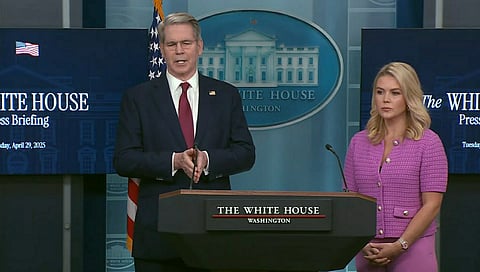

Amazon.com has firmly denied a report suggesting it intended to display the impact of U.S. tariffs on product prices, following a story by Punchbowl News.
The report claimed Amazon would show tariff-related costs alongside item prices, particularly for imports affected by President Donald Trump’s trade policies.
On April 29, Amazon clarified that no such plan was ever considered for its main retail site, and no changes were implemented across its platforms.
“The team that runs our ultra low cost Amazon Haul store has considered the idea of listing import charges on certain products,” an Amazon spokesperson said, emphasizing the idea was limited to its discount storefront and never executed.
The initial report drew sharp criticism from the White House, with Press Secretary Karoline Leavitt labeling the alleged plan “a hostile and political act by Amazon.”
Leavitt, who discussed the issue with Trump, referenced a 2021 Reuters report claiming Amazon had ties to a “Chinese propaganda arm.”
She added, “So, this is another reason why Americans should buy American,” aligning with the administration’s push for domestic manufacturing.
The White House amplified the critique by tweeting a link to the Reuters story.
Amazon’s shares dipped 2.2% in premarket trading following the comments but later stabilized, trading nearly flat.
Trump’s tariffs, particularly on Chinese imports, have increased costs by 145% since he took office, impacting retailers like Amazon Haul, a platform competing with low-cost Chinese retailers Temu and Shein.
Temu recently began listing import charges of around 145% on products, while Shein raised prices without explicitly citing tariffs, displaying a checkout banner stating, “Tariffs are included in the price you pay. You’ll never have to pay extra at delivery.”
Meanwhile, Amazon announced its annual Prime Day sale for July, though some third-party sellers may skip the event due to tariff-related uncertainties.